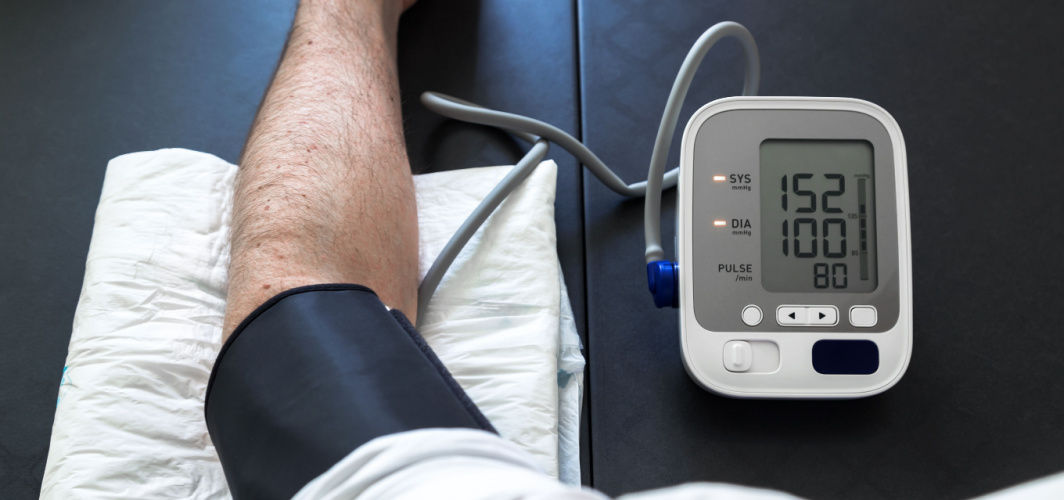General Health
5 Diseases That Show No Signs And Symptoms But Can Kill You
5 min read
By Apollo 24|7, Published on - 10 January 2023, Updated on - 06 August 2024
Share this article
0
0 like

A migraine causes sharp shooting pain in the head, while pharyngitis would cause pain in the throat. But what if the disease does not show any symptoms? Well, certain diseases do not show noticeable or identifiable symptoms in the early stages, making their diagnosis difficult. As a result, they progress to an advanced stage and become a serious, often life-threatening health condition. These diseases are, therefore, called silent killers. Here we will discuss five such silent killers.
1. Hypertension
High blood pressure or hypertension is one of the most dangerous silent killers. In the early stages, hypertension does not cause any symptoms. It must be noted that persistently high blood pressure damages the blood vessels and increases the risk of cardiovascular conditions like heart attack, stroke, and kidney disease. The best way to detect and prevent hypertension is by routinely conducting blood pressure checks and maintaining a healthy lifestyle.
2. Heart Diseases
Several heart conditions do not exhibit any symptoms unless they cause irreversible damage to the organ. A heart condition called, coronary artery disease (CAD), causes the narrowing of the arteries supplying blood and oxygen to the heart. CAD does not exhibit any symptoms in the early stages and can result in a heart attack later in life.
Another condition, called a silent heart attack, causes a lack of oxygen supply to the heart but does not exhibit any symptoms. One should undergo routine follow-up consultations and tests to ensure optimal heart health.
3. Type 2 diabetes
Type 2 diabetes is a common but chronic metabolic disorder. It occurs when blood sugar levels increase due to reduced insulin production or reduced insulin sensitivity in the body. Type 2 diabetes does not cause significant signs or symptoms in the early stages. Moreover, uncontrolled diabetes can damage vital organs like the eyes, heart, kidneys, and nerves. Regular consultation with your doctor, health check-ups and self-monitoring are key to preventing and managing complications related to the disease.
4. Fatty Liver Disease
Fatty liver disease is a metabolic condition characterised by excess fat storage in the liver. The condition does not cause problems in the early stages. However, you are at a high risk of liver damage if it is left untreated. Fatty liver disease can be reversed with lifestyle changes like eating a healthy balanced diet, cutting back on saturated carbohydrates, and maintaining a healthy weight. In severe cases, it can cause liver cirrhosis or hepatocellular carcinoma.
Click To Get A Liver Profile Test
5. HIV/AIDS
AIDS is a sexually transmitted infection caused by the Human Immunodeficiency Virus (HIV). One of the first symptoms to appear after contracting the virus could be a flu-like infection. Since early symptoms of AIDS are quite common, it may take longer to diagnose the actual disease. While the symptoms of HIV/AIDS can be managed with antiretroviral therapy, the disease cannot be completely cured.
Being proactive about your health helps you avoid silent-killer diseases like the ones mentioned above. Getting yearly health check-ups and visiting your doctor regularly helps identify diseases early and get effective treatment. Consult your doctor and book a health check-up today.
FAQs
1. Why hypertension is called a silent killer?
Hypertension does not cause any symptoms early on and progresses to damage vital organs like the heart and kidneys.
2. What are the first signs that indicate you may have developed type 2 diabetes?
Increased thirst, hunger or frequent urination are some of the signs and symptoms of type 2 diabetes.
3. What are some risk factors for coronary artery disease?
High blood pressure, high blood cholesterol, smoking and obesity are high-risk factors for coronary artery disease.
4. Who is more prone to developing HIV?
People having unprotected sex with multiple partners and those sharing needles are most prone to developing HIV.
5. What are the most common causes of fatty liver disease?
Fatty liver is more likely to occur in obese individuals, people with type 2 diabetes or insulin resistance or other metabolic issues like high cholesterol.
For more information,
Medically reviewed by Dr Sonia Bhatt.
General Health
Leave Comment
Recommended for you
.jpg?tr=q-80)
General Health
Total Leucocyte Count (TLC) Test: Normal Range, Importance, Procedure and Results
TLC normal range plays a vital role in assessing your body's immune response. Get detailed insights into its importance and health implications.

General Health
5 Healthy Summer Fruits To Beat The Heat
Indian summers can be quite excruciating. It can often get a little challenging to maintain body hydration and energy in the scorching summer heat. Certain fruits can help you deal with such problems and even provide you with some additional benefits.

General Health
Shingles In Older Adults: Causes And Treatment
Explore the causes and effective treatment options for shingles in elderly individuals in India. Learn about this prevalent health issue.
Subscribe
Sign up for our free Health Library Daily Newsletter
Get doctor-approved health tips, news, and more.
Visual Stories

The Best Exercises for Controlling Blood Sugar Levels
Tap to continue exploring
Recommended for you
.jpg?tr=q-80)
General Health
Total Leucocyte Count (TLC) Test: Normal Range, Importance, Procedure and Results
TLC normal range plays a vital role in assessing your body's immune response. Get detailed insights into its importance and health implications.

General Health
5 Healthy Summer Fruits To Beat The Heat
Indian summers can be quite excruciating. It can often get a little challenging to maintain body hydration and energy in the scorching summer heat. Certain fruits can help you deal with such problems and even provide you with some additional benefits.

General Health
Shingles In Older Adults: Causes And Treatment
Explore the causes and effective treatment options for shingles in elderly individuals in India. Learn about this prevalent health issue.